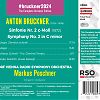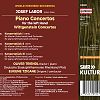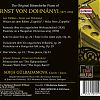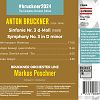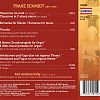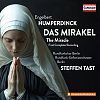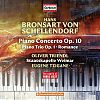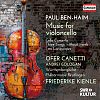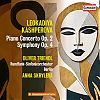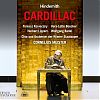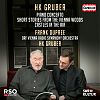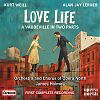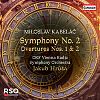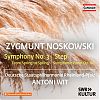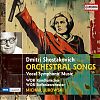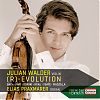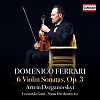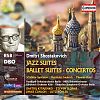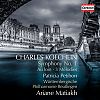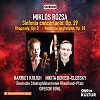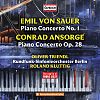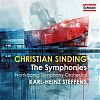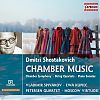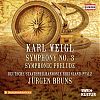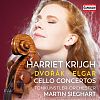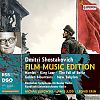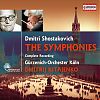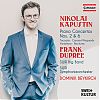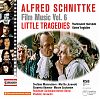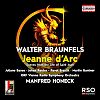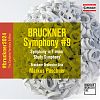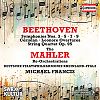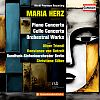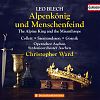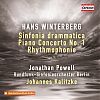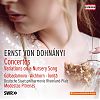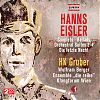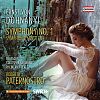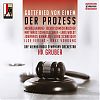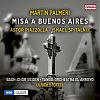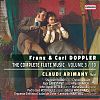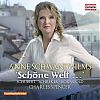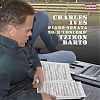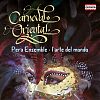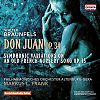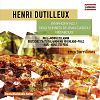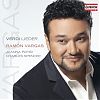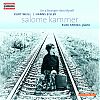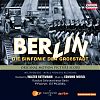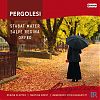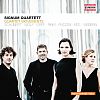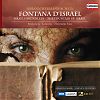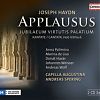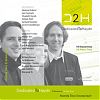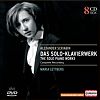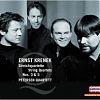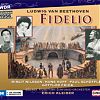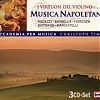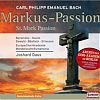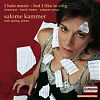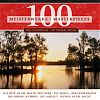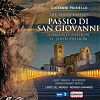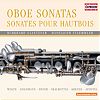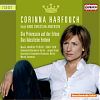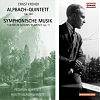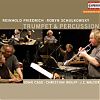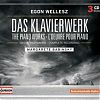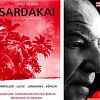cd

#bruckner24 Symphony #2 (1872)
ORF VIENNA RADIO SYMPHONY ORCHESTRA · Markus Poschner
Bruckner’s Second Symphony is a rare enough encounter in its 1877 version, but it’s virtually unperformed in the 1872 original version. This is not owing to some deficiency of the earlier ideas compared to the later alterations. It’s mainly habit and convenience because to get new parts and re-learn something ostensibly known, that differs in a great many details, means an extra expense of effort and resources. That’s a shame, really, because it is decidedly worth discovering the original, not-yet-ironed-out rawness of Bruckner’s early masterpiece, which was something unheard of at the time – but needn’t remain unheard now.
Youtube
Weitere Bilder

JOSEF LABOR
OLIVER TRIENDL · Deutsche Staatsphilharmonie Rheinland-Pfalz · Eugene Tzigane
Besides the well-known Left Hand Piano Concertos by Korngold, Prokofiev, Ravel and others, this very first Concert of Josef Labor marks the beginning of this genre in 1915. One-Handed pianist Paul Wittgenstein ordered it already during his captivity in Russia where he lost his right arm but determined to forward his pianistic career. Labor was part of Johannes Brahms’s close circle of friends. At the age of three, he lost his sight due to smallpox. For him composition was a luxury, insofar as he had to rely on the help of a scribe who had to commit the work to paper. Labor’s music is very skillfully composed, always sensuous, and first and foremost melodious; it does not require a too complete concentration on itself. These World Premiere Recordings marks an highlight of Capriccio's Labor-Edition which focused already since years on this sensitive Music of an mostly forgotten composer.
Youtube
Weitere Bilder

ERNST VON DOHNÁNYI - Solo Piano Works
SOFJA GÜLBADAMOVA (Original Bösendorfer Piano with the Clutsam Keyboard of Ernst von Dohnanyi, 1910)
Ernst von Dohnányi was interested in various inventions throughout his life, so it is not surprising that around 1909–1910 he became one of the main promoters of pianos with a semi-circular keyboard. At that time, they had long been experimenting with creating the most comfortable keyboard possible, with all its parts being at the same distance from the pianist, and being able to play it with the same body and hand position at the bottom, middle or top of the keyboard range. It seems that the Viennese Ludwig Bösendorfer started making pianos with a concave keyboard (Bogenklaviatur) only in 1910, and Dohnányi used them exclusively in the territory of the Austro-Hungarian Monarchy. After Dohnányi moved home to Budapest at the end of 1915, one of his own pianos was the short Clutsam-Bösendorfer, which is currently owned by the Budapest Museum of Music History. This CD offers the first recording of this special instrument after a long time restoration.
Hörprobe
Weitere Bilder

#bruckner24 Symphony #3 (1889)
BRUCKNER ORCHESTER LINZ · MARKUS POSCHNER
Bruckner’s Third Symphony had always been something of a problem child among Bruckner’s symphonies, from its disastrous first reception (an enthused youthful Gustav Mahler notwithstanding) until well into the 20th century. In its original form, it is the longest, most Wagnerian of his symphonies – and often considered, rightly or not, the first truly Brucknerian symphony. While some cherish the uncompromising originality of the first version, Bruckner himself wanted the third, much tightened Edition performed, finding it “incomparably better”. It is that final version that is here recorded – and listeners can now easily decide for themselves.
Youtube
Weitere Bilder

FRANZ SCHMIDT - The Piano Album
Karl-Andreas Kolly, piano
Franz Schmidt was not only a brilliant cellist, but also a gifted pianist who mastered almost the entire piano repertoire with ease. Nevertheless, he had a kind of love-hate relationship with the piano. His great love was the organ. However, this did not prevent him from writing numerous works for the left hand (Beethoven Variations, Piano Concerto in E-flat major, Quintets). All of these were commissioned by the one-armed pianist Paul Wittgenstein. For two-handed piano, on the other hand, Schmidt left behind only one composition. It is the melancholic Romance, which he dedicated to his English teacher Geoffrey Sephton in 1922. Karl-Andreas Kolly: 'The fact that I have nevertheless decided to set three of Franz Schmidt’s organ works for piano has primarily to do with my great passion for his music. And also a little with my hope that in a piano version, his organ works could possibly reach an additional audience.'


